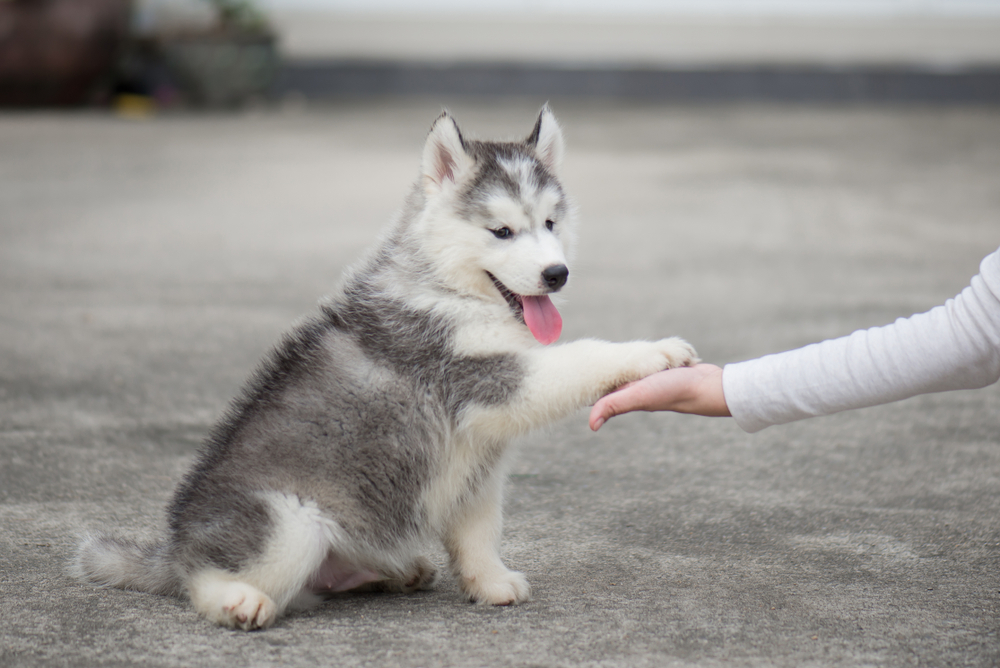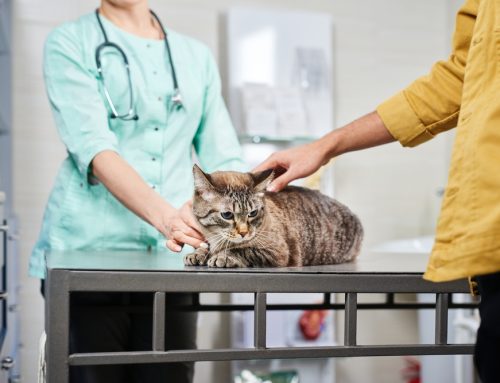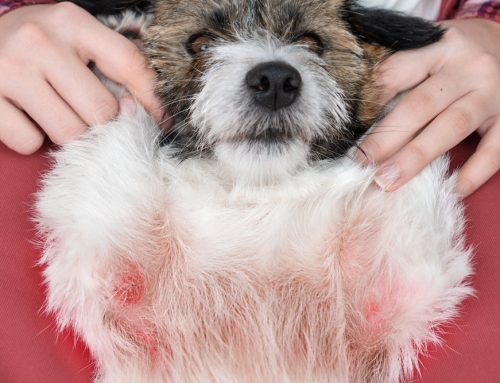Few things are more exciting than welcoming a new puppy into your family. From puppy breath and furry cuddles to fun games of fetch, a new pet guarantees joy and a special companionship. However, puppies, like human children, require a lot of attention, teaching, and care to help ensure they thrive well into their grey muzzle years. Follow these five tips from your Twin Maples Veterinary Hospital team to provide your puppy with the proper care and socialization that will ensure you set them up for success in all aspects of their life.
#1: Purchase pet insurance
Our four-legged companions require many supplies and veterinary visits throughout their life to ensure they are healthy and protected from illness. Many pets also will likely experience an unexpected injury or illness that may require expensive emergency veterinary care or surgery. Pet insurance alleviates some veterinary expenses and allows pet owners to financially prepare for unexpected costs. Unlike medical insurance for people, pet insurance is not limited to a specific hospital and can be used at most licensed veterinarians, including your Twin Maples Veterinary Hospital. Pet insurance policies will not include pre-existing conditions, so signing up for a plan when your pet is a puppy will provide more coverage throughout their life. When choosing a plan, consider whether the following are included:
- Vaccinations and parasite control
- Physical exams
- Surgery
- Hospitalization
- Dental procedures
- Imaging (i.e., X-rays, ultrasound, MRI)
- Laboratory tests (i.e., blood work, urine, cultures)
- Behavior consultations
#2: Purchase puppy supplies ahead of time
Caring for a new puppy includes new toys, leashes, veterinary visits, and more. Consider purchasing essential supplies before you bring your puppy home. Then, once you know your new pet better, you may realize they need more. Essentials include the following:
- Grooming supplies
- Puppy-safe shampoo
- Nail trimmers
- Brush or comb
- Walking and potty training
- Fixed-length leash between four and six feet long
- Poop bags, or plastic grocery bags
- Harness with a chest and shoulder clip
- Collar and identification tags
- Oral health supplies
- Dog toothbrush
- Pet-safe toothpaste
- Other home supplies
- Pet gates
- Pet stain and odor remover
- Food and water bowls, preferably stainless steel
- Dog bed
- Crate
- Puppy enrichment and training tools
- Variety of size-appropriate toys
- High quality food and treats
#3: Schedule puppy preventive care visits
Puppy-hood goes by quickly, and our pets never seem to stay with us long enough. Preventive care veterinary visits are key to ensure your puppy remains healthy and by your side for as long as possible. Schedule a veterinary exam shortly after bringing your new puppy home, for your veterinarian to perform a baseline physical exam, and provide a vaccination schedule. Vaccines are critical to ensure your puppy develops a strong immune system. During their first few months, they will require core vaccinations against common dog diseases, including distemper, canine parvovirus, hepatitis and rabies. Depending on your puppy’s lifestyle, our Twin Maples veterinarian may also recommend vaccinations for Bordetella, Lyme disease, canine influenza, or leptospirosis.
Your puppy’s rounded belly can indicate they are infected with intestinal parasites. Puppies commonly become infected from their mothers or previous environments, so a deworming treatment series and fecal tests will likely be included in your puppy’s preventive care visits.
#4: Feed your puppy good quality food
Choosing the right puppy diet can be overwhelming and confusing with all the available options. High quality food will ensure your pet receives all the key nutrients they need to support their growing bones and developing organs. The Association of the American Feed Control Officials (AAFCO) has established guidelines for pet food and nutrition, and you should check the food package label to ensure your puppy’s food meets AAFCO standards and is complete and balanced. Depending on their breed and appetite, most puppies will eat three or four times daily during their first 12 weeks. Then, feeding frequency can be reduced to three times daily until they reach around 6 months of age, when you can likely reduce them to twice daily feedings. Puppies can begin transitioning to adult dog food at around 9 to 12 months of age, depending on their breed. Your veterinarian will weigh your puppy during each preventive care visit to ensure they are growing appropriately and maintaining a healthy weight. Always consult with your veterinarian before changing your pet’s diet.
#5: Teach your puppy good manners

Puppies are fast learners and eager to please their pet parents, especially between the ages of 3 and 14 weeks. Although learning is a lifelong process, teaching your puppy proper manners and socialization skills early will help ensure they can adjust to variable environments and situations, and help prevent a lifetime of behavior issues or stress. Begin training your puppy at home using ample treats and praise to positively reward them for correct behavior, and then socialize them outside the home as soon as they have received all their vaccinations. Ensure that you have a properly fitting leash and collar on your pet at all times, especially in public. Start by taking your puppy to high foot-traffic areas with various sites and sounds, such as a park or a pet-friendly mall. Immediately reward your puppy every time they are calm and accepting of a new experience, person, or sound. If you have limited time for teaching your puppy manners, or are having trouble, consider enrolling them in a training or obedience school.
Our Twin Maples Veterinary Hospital team looks forward to meeting your new puppy. Call our office if you have any questions about caring for your pet, or to schedule their first puppy wellness exam.









Leave A Comment